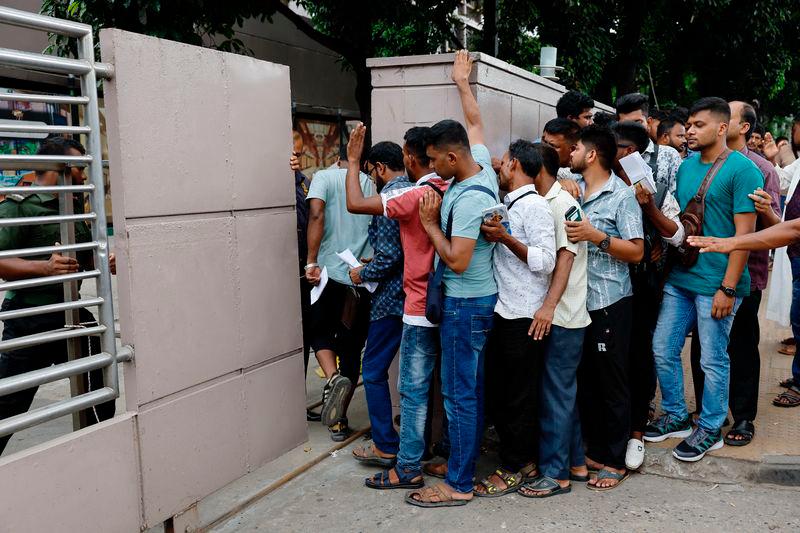DHAKA: Bangladesh’s Supreme Court on Sunday scrapped most of the quotas on government jobs that had sparked nationwide protests by students that have killed at least 114 people in recent days.
Dismissing a lower court order, the Supreme Court’s Appellate Division directed that 93% of government jobs in the South Asian Country should be open to candidates on merit, Bangladesh Attorney General A.M. Amin Uddin told Reuters.
“Students have clearly said they are in no way part of the violence and arson that have taken place in Bangladesh since Monday,“ he said by phone.
“I am hoping normalcy will return after today’s ruling and people with ulterior motives will stop instigating people,“ Amin Uddin said. “I will ask the government to find out the culprits behind the violence and take strict action against them.”
Prime Minister Sheikh Hasina’s government had scrapped the quota system in 2018, but the lower court reinstated it last month, pegging total quotas at 56%, sparking the protests and an ensuing government crackdown.
Internet and text message services in Bangladesh have been suspended since Thursday, cutting off the nation of nearly 170 million people as security forces cracked down on protesters who defied a ban on public gatherings.
Soldiers have been patrolling the streets of capital Dhaka, where army check points have been set up, after the government ordered a curfew late on Friday.
Streets near the Supreme Court were quiet immediately after the decision, a Reuters witness said. A military tank was stationed outside the court’s gate, television footage showed.
Local media had reported scattered clashes earlier in the day between protesters and security forces. Overseas telephone calls mostly failed to connect while websites of Bangladesh-based media organisations did not update and their social media accounts remained inactive.
OUTLOOK UNCERTAIN
The government extended the curfew as authorities braced for the Supreme Court hearing on the job quotas.
The curfew until 3 p.m. (0900 GMT) on Sunday was to resume for an “uncertain time” after a two-hour break for people to gather supplies, local media reported. Reuters could not immediately determine what would happen to the curfew after the ruling.
Nationwide unrest broke out following student anger against quotas for government jobs that included reserving 30% of positions for the families of those who fought for independence from Pakistan.
The Supreme Court directed the government to cut the job quotas for families of independence fighters to 5%, the attorney general said. The remaining 2% of jobs still subject to quotas are for people from so-called backward groups and the disabled, he added.
The demonstrations - the biggest since Hasina was re-elected for a fourth successive term this year - have also been fuelled by high unemployment among young people, who make up nearly a fifth of the population.
High living costs sparked deadly protests in Bangladesh last year, months after it turned to the International Monetary Fund for a $4.7 billion bailout as it struggled to pay for imported oil and gas because of dwindling dollar reserves.
Many opposition party leaders, activists and student protesters have been arrested in the current crackdown, said Tarique Rahman, the exiled acting chairman of the main opposition Bangladesh Nationalist Party. Police arrested Nahid Islam, a leading student coordinator, on Saturday, the protesters said.
Universities and colleges have been closed since Wednesday.
The U.S. State Department on Saturday raised its travel advisory for Bangladesh to level four, urging American citizens not to travel there.









